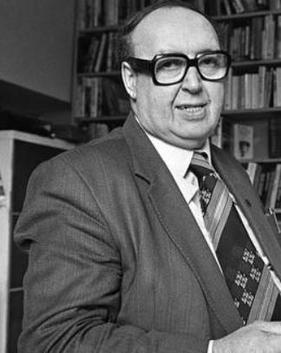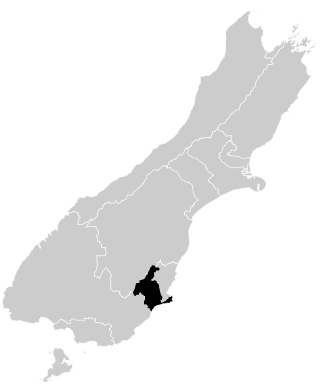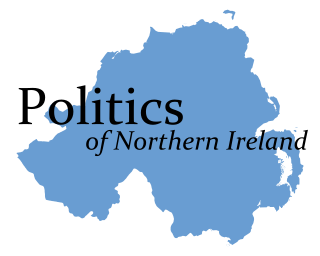
Ireland is a parliamentary, representative democratic republic and a member state of the European Union. While the head of state is the popularly elected President of Ireland, it is a largely ceremonial position, with real political power being vested in the Taoiseach, who is nominated by the Dáil and is the head of the government.

The UK Unionist Party (UKUP) was a small unionist political party in Northern Ireland from 1995 to 2008 that opposed the Good Friday Agreement. It was nominally formed by Robert McCartney, formerly of the Ulster Unionist Party, to contest the 1995 North Down by-election and then further constituted to contest the 1996 elections for the Northern Ireland Forum. McCartney had previously contested the 1987 general election as an independent using the label Real Unionist.
The Co-operative Party is a centre-left political party in the United Kingdom, supporting co-operative values and principles. The party currently has an electoral pact with the Labour Party. Established in 1917, the Co-operative Party was founded by co-operative societies to campaign politically for the fairer treatment of co-operative enterprise and to elect co-operators to Parliament. The party's roots lie in the Parliamentary Committee of the Co-operative Union established in 1881.

Republican Sinn Féin or RSF is an Irish republican political party in Ireland. RSF claims to be heirs of the Sinn Féin party founded in 1905; the party took its present form in 1986 following a split in Sinn Féin. RSF members take seats when elected to local government in the Republic of Ireland, but do not recognise the validity of the Partition of Ireland. It subsequently does not recognise the legitimacy of the parliaments of Northern Ireland (Stormont) or the Republic of Ireland, so the party does not register itself with them.

The Vanguard Unionist Progressive Party (VUPP), informally known as Ulster Vanguard, was a unionist political party which existed in Northern Ireland between 1972 and 1978. Led by William Craig, the party emerged from a split in the Ulster Unionist Party (UUP) and was closely affiliated with several loyalist paramilitary groups. The party was set up in opposition to compulsory power sharing with Irish nationalist parties. It opposed the Sunningdale Agreement and was involved in extra-parliamentary activity against the agreement. However, in 1975, during discussions on the constitutional status of Northern Ireland in the constitutional convention, William Craig suggested the possibility of voluntary power sharing with the nationalist Social Democratic and Labour Party. In consequence the party split, with dissenters forming the United Ulster Unionist Party. Thereafter Vanguard declined and following poor results in the 1977 local government elections, Craig merged the remainder of Vanguard into the UUP in February 1978.

North Down is a parliamentary constituency in the United Kingdom House of Commons. The current MP is Alex Easton, elected at the 2024 United Kingdom general election.
The Northern Ireland Labour Party (NILP) was a political party in Northern Ireland which operated from 1924 until 1987.

Patrick Joseph Devlin was an Irish socialist, labour and civil rights activist and writer from Belfast. He was a founding member of the Social Democratic and Labour Party (SDLP), a Stormont MP and a member of the 1974 Power Sharing Executive.

The Democratic Socialist Party (DSP) was a small left-wing political party in Ireland. The party was formed by a merger of Jim Kemmy's Limerick Socialist Organisation and the Socialist Party of Ireland. Jim Kemmy was an Irish politician and member of Dáil Éireann. He left the Labour Party in 1972. A number of members of the British and Irish Communist Organisation also joined the party.
The Labour Coalition was an electoral coalition in Northern Ireland of socialist and labour groups, formed to stand in the 1996 Northern Ireland Forum elections. It was listed in the enabling legislation simply as "Labour".
The Newtownabbey Labour Party is a minor political party based in Newtownabbey, Northern Ireland.
Malachi Curran is a Northern Irish politician.
Hugh Casey MBE was a Northern Irish politician.

Dunedin South is a former New Zealand parliamentary electorate. It first existed from 1881 to 1890, and subsequently from 1905 to 1946. In 1996, the electorate was re-established for the introduction of MMP, before being abolished in 2020.
Mark Langhammer is a Northern Irish trade unionist, employed as Director of the Association of Teachers and Lecturers and elected onto the Northern Ireland Committee of the Irish Congress of Trade Unions in 2008, being re-elected in 2010. A former politician in Northern Ireland, he was previously a prominent northern-based member of the Irish Labour Party.

Elections for local government were held in Northern Ireland in 1989, with candidates contesting 565 seats.
There are five types of elections in the United Kingdom: elections to the House of Commons of the United Kingdom, elections to devolved parliaments and assemblies, local elections, mayoral elections, and Police and Crime Commissioner elections. Within each of those categories, there may also be by-elections. Elections are held on Election Day, which is conventionally a Thursday, and under the provisions of the Dissolution and Calling of Parliament Act 2022 the timing of general elections can be held at the discretion of the prime minister during any five-year period. All other types of elections are held after fixed periods, though early elections to the devolved assemblies and parliaments can occur in certain situations. The five electoral systems used are: the single member plurality system (first-past-the-post), the multi-member plurality, the single transferable vote, the additional member system, and the supplementary vote.
The Labour and Trade Union Group was an organisation for supporters of the Militant tendency in Northern Ireland.
The Labour Party in Northern Ireland (LPNI) is the UK Labour Party's regional constituency organisation that operates in Northern Ireland. The Labour Party is not a registered political party in Northern Ireland and does not currently contest elections.










